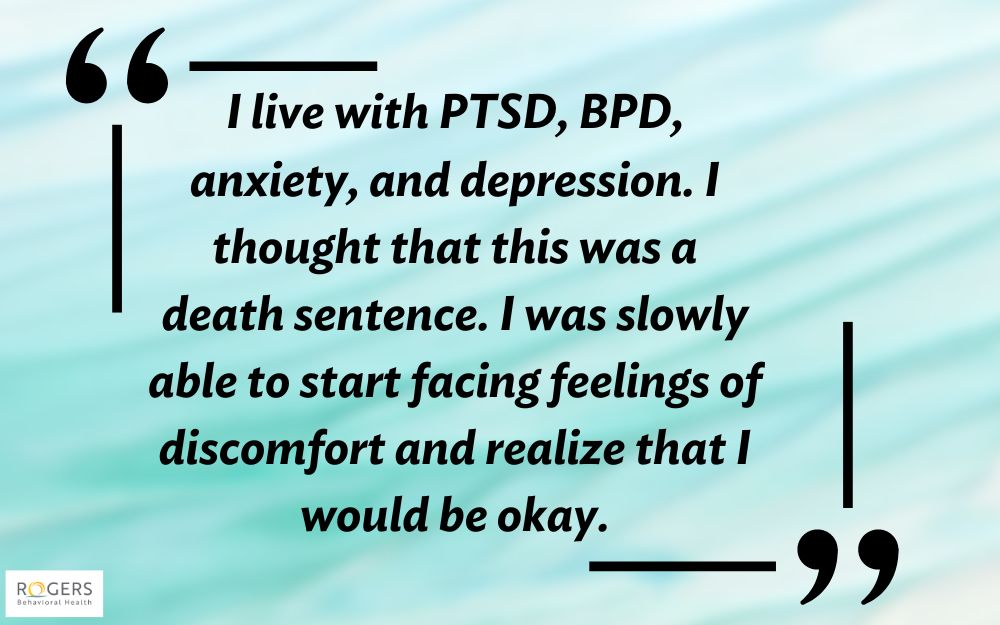–Jenn, former Trauma Recovery patient at Rogers’ Hinsdale clinic
“Dear Future Patient,
I live with PTSD, Bipolar Disorder, anxiety, and depression. I thought this was a death sentence, or at least a death in the way of living a life worth living. My life was a disaster, and my mental health was invading every aspect of my life. I was in and out of mental health programs, trying various new meds with various side effects, lying in bed all day, skipping work, ignoring my home, family, friends, and hygiene.
Healing from trauma
But the way you live your life and treat others (and hopefully start to feel better) is up to you and you alone. You will not magically be better after coming to therapy or a program. You will not suddenly see your problems go away. You will just learn how to respond and deal with them. There will not be a sudden strike of motivation to get up and do things. The physics concept of inertia tells us an object in motion wants to stay in motion, and an object that is still wants to stay still. You have to be the one to make the first move to get up and go and do something to get it started. This is called behavioral activation, which you will learn.
Trauma treatment
I was so terrified of having a panic attack or getting too angry or emotional in public that just thinking about it would cause me to shut down.
Through the exposure exercises, I was slowly able to start facing feelings of discomfort and realizing they can’t hurt me, then slowly and incrementally adjusting to the discomfort and realizing I would be okay. I learned assertive communication, overcame my anticipatory anxiety, and started moving again. You can’t avoid it forever. Inertia is keeping me going.
The number one most beneficial thing that I learned at Rogers was that the goal was not to fight emotions or never feel them again. Instead, learning to cope with them and feel them. By doing this, it was no longer so scary. This whole concept changed my thinking and gave me a sense of self-empowerment.
Holding onto traumatic experiences that we cannot change can be destructive
I also feel it was so beneficial to be amongst other people who suffered in the same ways as I did. I drew from their strength and was inspired by their courage. We learned to not view everything as black or white, not everything is catastrophic, so what if your worst fears happen? If your worst fears come true, you can still live on. We learned that it is only destructive to ourselves to hold onto past traumas we cannot change.
After recognizing that “should” statements are distortions, I was able to give myself a break and fully embrace the treatment. I am back in control, taking the steps, and my mental illness is no longer in the driver’s seat! I am able to stop, take a deep breath, think about how to react, then act in a way that is helpful to me and my situation. They call this being in “wise mind,” instead of behaving and acting in “emotion mind.” When I am actively engaging in harmful or destructive behavior, I am not only hurting those around me, but I am hurting myself and self-sabotaging my own life.”
-Jenn
Rogers offers Trauma Recovery
Whether you or a loved one are suffering from the effects of trauma or PTSD, Rogers compassionate teams are here to help. Call 800-767-4411 for a free, confidential screening.


